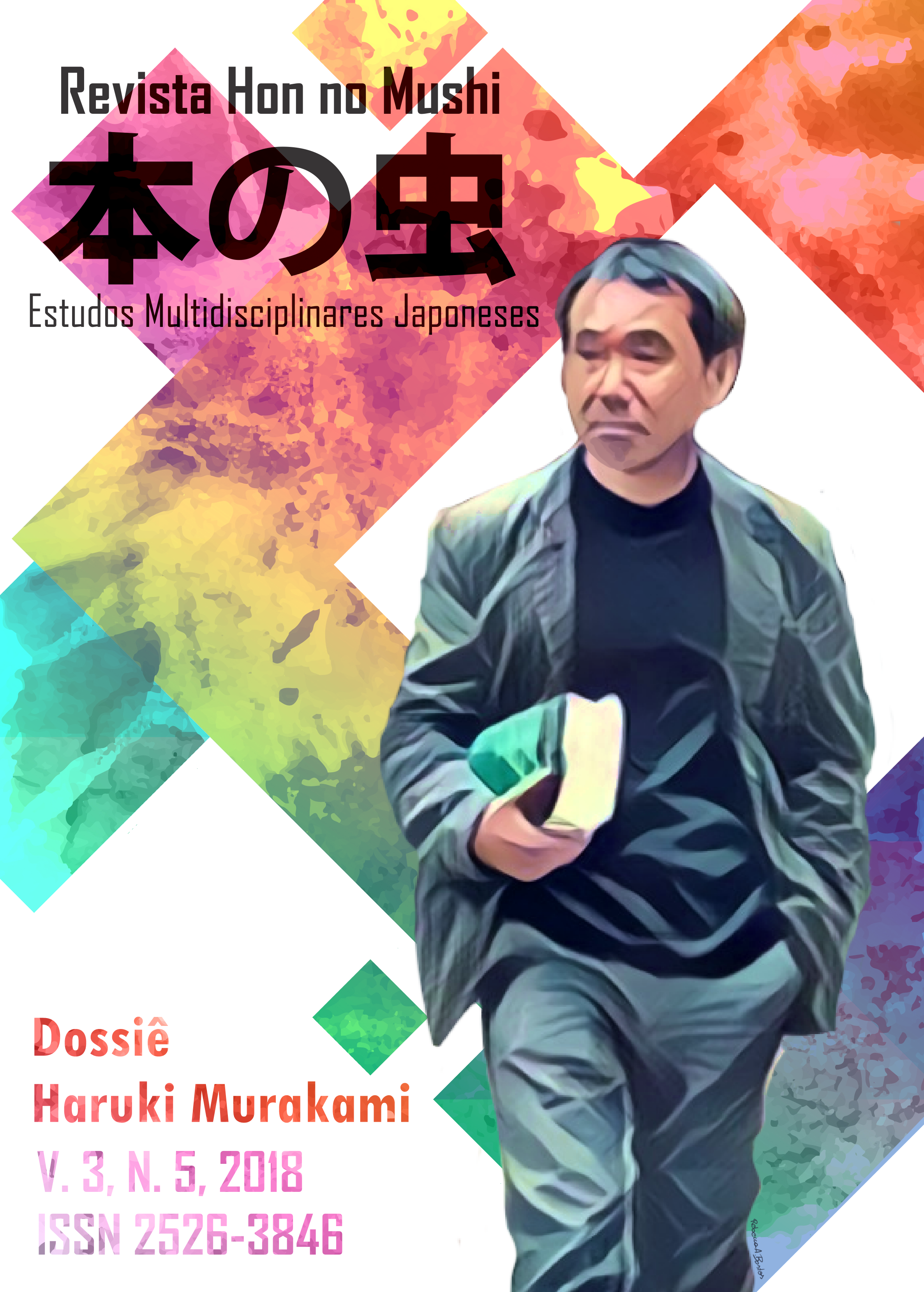FOREWORD
Keywords:
Haruki Murakami, Cultura Japonesa, Literatura JaponesaAbstract
The Hon no Mushi Journal - Japanese Multidisciplinary Studies sets up a critical and reflective space aimed at promoting and expanding the interchange of diverse scientific studies, as well as new knowledge in the fields of Japanese literature, language and culture. Thus, Volume 3, Number 5, coordinated by Professor Cacio José Ferreira, from the Federal University of Amazonas, gives an expressive prominence to the contemporary Japanese writer Haruki
Murakami.
Diffused since the 1980’s, Haruki Murakami’s fictional prose appropriates postmodern elements, integrating the multiple textualities in which the literary bed unfolds. In his works, the construction of reality is elaborated from the double gear that emerges from the unconscious of his characters. By this modus operandi, in his poetic prose, the word, for example, does not have the precise nuance that reveals the world, but operates by impressing undeniable narrative force, moving the plot. It is possible to notice the consciousness of the real only after going through the multiple paths woven by Murakami, especially under the decentralization of space, always in an aesthetically thought and orderly way.
In this perspective, the works published here include singular analyses by specialists and researchers, both students and teachers, around the work of Murakami, thus contributing to the expansion and deepening of scientific knowledge and research. Thus, the publication of number 5 is called the Haruki Murakami Dossier. However, in addition to articles dealing with author’s work, there are other publications, covering open themes, translation and interview.
Downloads
References
Downloads
Published
Issue
Section
License
The copyright belongs to the Hon Journal in Mishi - Multidisciplinary Japanese Studies and to the authors of each article. All work or part of it, when quoted or used, must be referenced.




